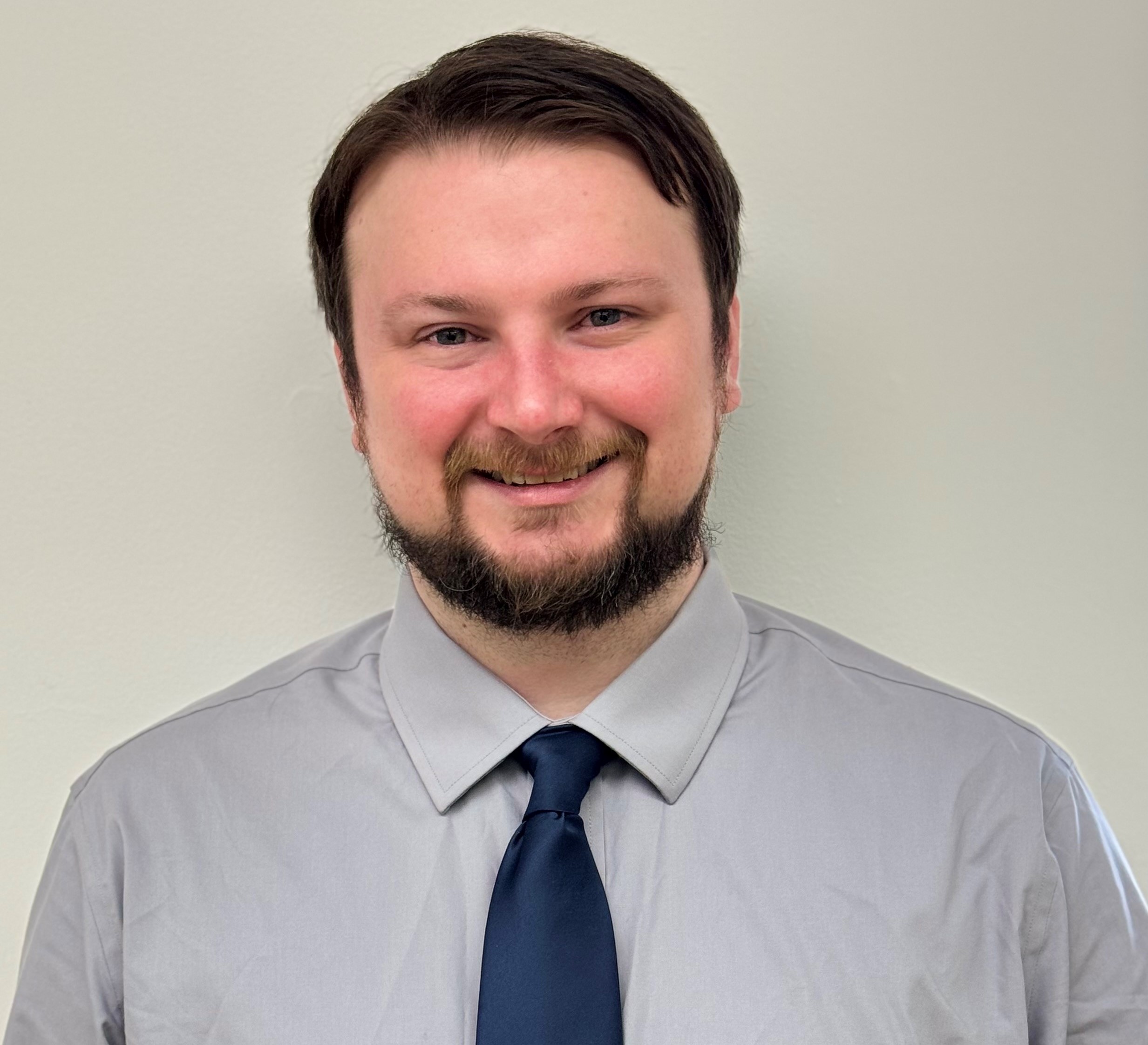 Our Get to Know the UCDC Researchers series highlights researchers from across the UAB Comprehensive Diabetes Center (UCDC), particularly those who manage day-to-day operations in the lab space. This month, we’re spotlighting Ben Gran, who works as lab manager for Rita Basu, M.D., and Ananda Basu, M.D.
Our Get to Know the UCDC Researchers series highlights researchers from across the UAB Comprehensive Diabetes Center (UCDC), particularly those who manage day-to-day operations in the lab space. This month, we’re spotlighting Ben Gran, who works as lab manager for Rita Basu, M.D., and Ananda Basu, M.D.
Tell us a little bit about you and your role at the UCDC.
I am the lab manager for both Dr. Rita and Dr. Ananda Basu who are clinical diabetes researchers. My main roles are to train new personnel, maintain the lab equipment, run established lab assays, develop new lab assays, and generate lab data. I also work collaboratively to support the research studies with the principal investigators (PIs), nursing staff, and research fellows.
What first got you interested in diabetes research?
My general interest in a research career began during my undergraduate studies at the University of Minnesota-Rochester (UMR). During my last two years at UMR, I needed to complete an experience outside of normal class hours for a final capstone project and presentation. I had an interest in pursuing a career as a lab scientist due to the enjoyment of my lab experience particularly in organic chemistry at UMR.
I eventually found an opportunity to work part-time as a research assistant in Dr. Mark McNiven’s lab at Mayo Clinic. Along with the completion of basic tasks assigned to me, I was able to learn a few things about the lab’s research and use of microscope imaging techniques. After college graduation, I pursued full-time employment. I was eventually offered an entry-level lab technician position in the Basu Lab at Mayo Clinic. Here, I was able to apply skills I gained from my college lab experience in organic chemistry and biochemistry. I also had some experience in chromatography interpretation and other techniques that were applicable to the job.
Along with the satisfaction of being able to work and gain experience in the field I pursued in college, I was able to develop my interest in diabetes research in the Basu Lab. Here, I learned a lot more in particular from both Dr. Rita and Dr. Ananda, as well as the other study team members. Both PIs have always pursued challenging research projects aimed at eventually providing better outcomes, lifestyle options, and care for diabetes patients. Their expertise, teaching, and guidance has been critical to develop my interest in the field. Being a part of such important research over the years has continued to cultivate my interest in the subject material and desire to benefit the program. Eventually I worked my way to the lab manager role. I have been with the lab for 10 years now after a couple of different relocations.
Tell us a little bit about your lab’s research or current projects.
Dr. Rita and Ananda Basu have been studying diabetes and metabolism in the clinical setting for decades now and are renowned for their research in the field. A unique component of our lab is the use of stable and radioactive isotopes to study metabolism of a meal, effectiveness of a drug, or other areas of interest. During a research study, various samples are collected for lab analysis. Lab bench work is a large component of the post-study work, and we use many different lab instruments to then generate the data. Our lab specializes in the use of gas chromatography/mass spectrometry for stable isotope analysis and liquid scintillation counting for radioactive isotope analysis. Dr. Rita is now on the 43rd year of her NIH grant. Dr. Ananda Basu is on the 11th year of his NIH grant.
What does it mean to be a lab manager, and how does it feel contributing to the UCDC’s mission?
I feel that this position is very fulfilling as I get to continue to develop in my areas of scientific interest while working collaboratively with other similarly minded people. I can do this while being able to help achieve goals for both Dr. Rita, Dr. Ananda, and UCDC overall. I enjoy the lab portion a lot in particular and the creativity involved with experimentation. It is a great feeling to know that some of my work may lead to further understanding to help people with diabetes.
What advice would you give a new lab manager?
The best advice I could offer is to always be willing and flexible to adjust to whatever is needed by the study team. Also, any role in research should continue to challenge you. It is important to have a strong commitment to learning. This is especially needed by those in a leadership position. If you do not have an immediate solution to a problem, then you should do your research and work on understanding the subject material. Many projects, concepts, or tasks may seem extremely challenging at first. However, these things all become easier as you gain experience from putting in the time required. You will not know all the answers right away so be willing to work through difficult challenges.
What are your hobbies and interests outside of the lab?
I was raised in a very musical household and enjoy spending my free time listening to music. I also play a bit myself, as a hobby. My dad is an avid record collector, and music was always playing in the house growing up. We also went fishing just about every weekend and spent a lot of time outdoors, in general. These are still some of my hobbies.